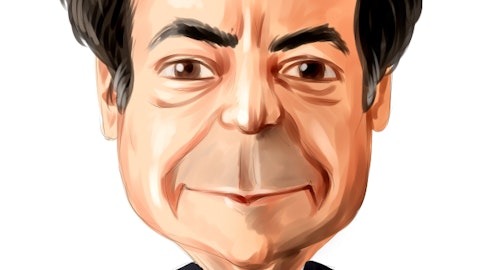James Dinan had profound experience in risk arbitrage before he founded his event driven strategy fund, York Capital Management in 1991. He had started working for the merger arbitrage firm Kellner DiLeo & Company in 1985 and before that he was employed at the stock research firm, Donaldshon, Luftkin & Jenrette (DLJ). In the interview series ‘The New Capitalists Shaping Our World’, Dinan talked about how the new world of risk arbitrage is significantly different from back in the days when he started out. Since technology has facilitated the instant availability of company’s filings to investors around the world, the informational advantage in the form of a one or two days headstart that firms like that of Dinan’s used to have is erased. According to him it is more of a ‘judgement’ game now, and considering his net worth of $2.4 billion as of January this year according to Forbes magazine, the 55-year-old’s judgement seems to be in tip-top condition.

Earlier in his career Dinan worked 100 hours a week as an investment banker, but hard work wasn’t all that he claims shaped his investment prowess. He suffered from hearing disability as a child and he often had to ‘guess’ what was being asked of him. With time he got much better at it. In fact, he attributes his rare ability to make the right decisions in the face of incomplete market information to that childhood disability. With Dinan’s background in mind, we have compiled a list of his top risk arbitrage picks according to his fund’s latest 13F filing, which are Actavis plc (NYSE:ACT), NXP Semiconductors NV (NASDAQ:NXPI), DIRECTV (NASDAQ:DTV), Comcast Corporation (NASDAQ:CMCSA) and Family Dollar Stores, Inc. (NYSE:FDO).
Most investors don’t have enough time to do in-depth analysis on each stock they want to include in their portfolios. Professional investors like Dinan spend weeks conducting due diligence on each company and spend millions obtaining information and paying the salaries of Ivy League-educated analysts. That’s why we have always believed that imitating the stock picks of hedge funds and billionaires is an excellent shortcut we can take, if done properly. To that end, we analyzed the historical stock picks of these investors and our research revealed that the small-cap picks of hedge funds performed far better than their large-cap picks, as well as the market as a whole. A portfolio of the 15 most popular small-cap stocks among hedge funds outperformed the S&P 500 Total Return Index by 95 basis points per month between 1999 and 2012. The exceptional results of this strategy got even better in the forward testing since the end of August 2012, when the strategy was launched. The most popular small-cap stocks among the hedge funds in our database beat the market by more than 82 percentage points (see the details).
The first holding in our list is represented by Actavis plc (NYSE:ACT), which acquired Botox-maker Allergan for $219 per share late last year. The transaction was a mixture of $129.22 in cash and 0.3683 of Actavis shares for each unit of Allergan stock. Shares of the botox-maker were trading around $200 before the deal was announced in mid-November. The deal, which was closed in mid-March, resulted in annualized merger arbitrage returns of 72.8%. Actavis plc (NYSE:ACT), on the other hand, rose by 24% during this four-month period.
Towards the end of 2014, York Capital held 2.02 million shares of Allergan valued at $429.84 million, while its stake in Actavis plc (NYSE:ACT) amounted to 1.35 million shares valued at $348.64 million. Andreas Halvorsen’s Viking Global increased its exposure to Actavis by 80% during the fourth quarter to 4.59 million shares valued at $1.18 million. Actavis was also among the best performing stocks for the first quarter of 2015.





